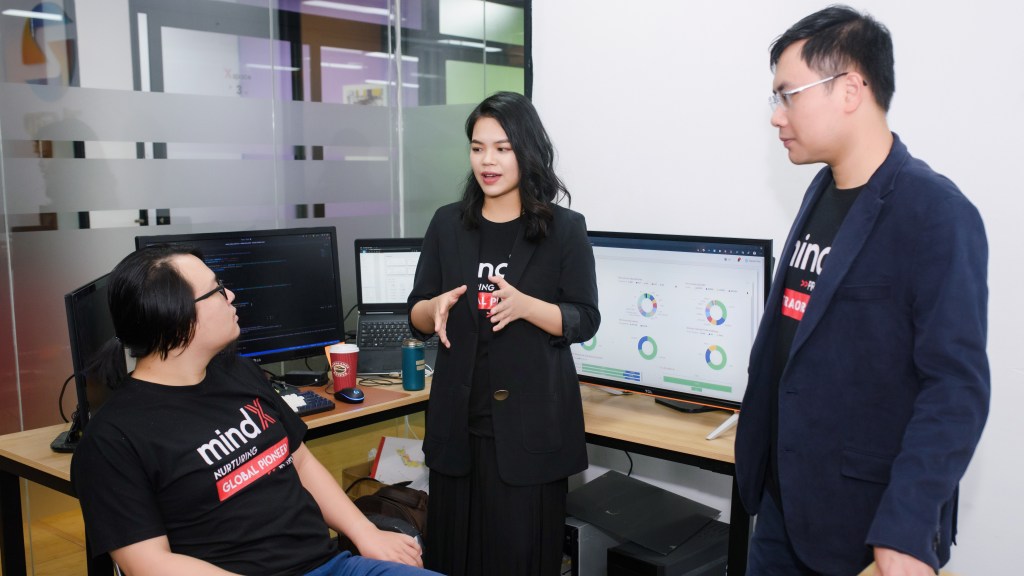Founded in 2015, MindX was created to address the lack of coding in Vietnamese school curriculums. The startup’s goal is to create “small Silicon Valleys” across Vietnam, with educational centers that help prepare students of all ages for careers in tech. Since TechCrunch covered MindX’s Series A funding in November 2021, it’s tripled its geographical coverage to 32 campuses across Vietnam, graduated 35,000 students so far and connected students to employers in countries like Australia, Thailand, the United Kingdom and, soon, the United States. The startup claims to be the largest coding educator in the region.
Today, the edtech announced that it has raised $15 million in Series B funding led by Kaizenvest, a private equity firm that focuses on the education space. Other investors included Thai education firm Aksorn, Japanese HR firm Mynavi and returning investor Wavemaker Partners. MindX also received another round of debt financing from Beacon Fund, an impact investment firm focused on women-owned and led businesses in Southeast Asia.
MindX’s educational offerings have now expanded beyond coding to in-demand skills like blockchain, data analytics and UI/UX design. It also began entering Tier 2 and Tier 3 cities like Ha Long, Da Nang and Bien Hoa, with the goal of covering 45 cities by June. Founder Nguyen Thanh Tung told TechCrunch that that MindX had many students in those cities who had been taking classes virtually, and they started attending classes in person once new campuses opened.
Nguyen said localization is very important to MindX as it scales into new areas. Before entering a new city or province, its team spends months visiting homes and getting to know students and parents. Then they customize their product offerings based on what they hear.
Despite its hybrid model, most of MindX’s campuses are standalone, because this gives it better brand recognition and more control over curriculum and teaching quality. Before the pandemic, all of MindX’s classes were in person. During the pandemic, MindX shifted to a hybrid model, letting students attend classes at a campus or virtually from home. This helped the company reach new students in remote areas, and it continues to uses a hybrid model, with online classes for instruction and in-person classes for tutorials.
“The transition to a hybrid model was not without its challenges,” said Nguyen. “It was an entirely different learning experience.” MindX had to revamp its course materials and learning experiences to make sure that both online and in-person delivery was seamless. For example, it added online mini-game and breakout room group discussions to its online classes to make them more engaging.
MindX’s afterschool classes include web/blockchain programming, digital art, data analytics and UI/UX design. Courses range in length from two months to six years. One difference between MindX and other edtechs is that it focuses on getting students ready for new jobs (MindX currently has over 300 hiring partners). For example, it offers real-life projects, career talks and mock interviews. It also holds Demo Days, where students’ projects are judged by businesses.
For students in longer courses, MindX hosts an entrepreneurial program with classes on marketing, fundraising and other business skills. At the end of the course, students apply their new skills to projects like websites, mobile apps and games. Then they can pitch their ideas for funding to a panel that includes MindX’s co-founders and representatives from venture firms.
The new funding will be used to develop MindX’s product portfolio, its hybrid model and tech tools to increase Vietnam’s digital talent pool. Nguyen said MindX will focus on developing accredited programs and promoting gender equality in its courses with scholarships for female students.
In a statement about its investment in MindX, Kaizenvest founder and managing partner Sandeep Aneja said, “The company (MindX) is well-positioned to lead the coding and digital skills space in Vietnam. We are delighted to associate with the founding team as they have consistently delivered high quality learning outcomes. We believe this investment fits within the future of learning themes and is a testament to our confidence in the growing demand of technology courses across Southeast Asia during the long term.”
Strive gets backing from Y Combinator to show kids that coding is fun































Comment